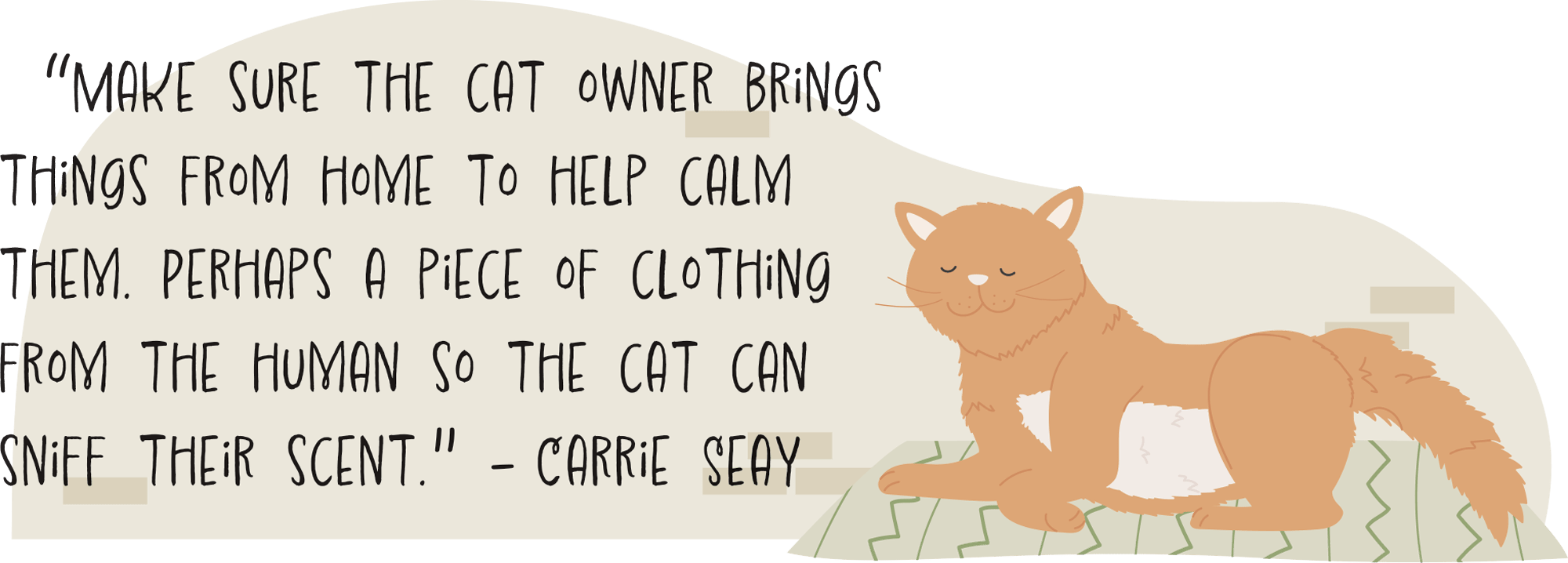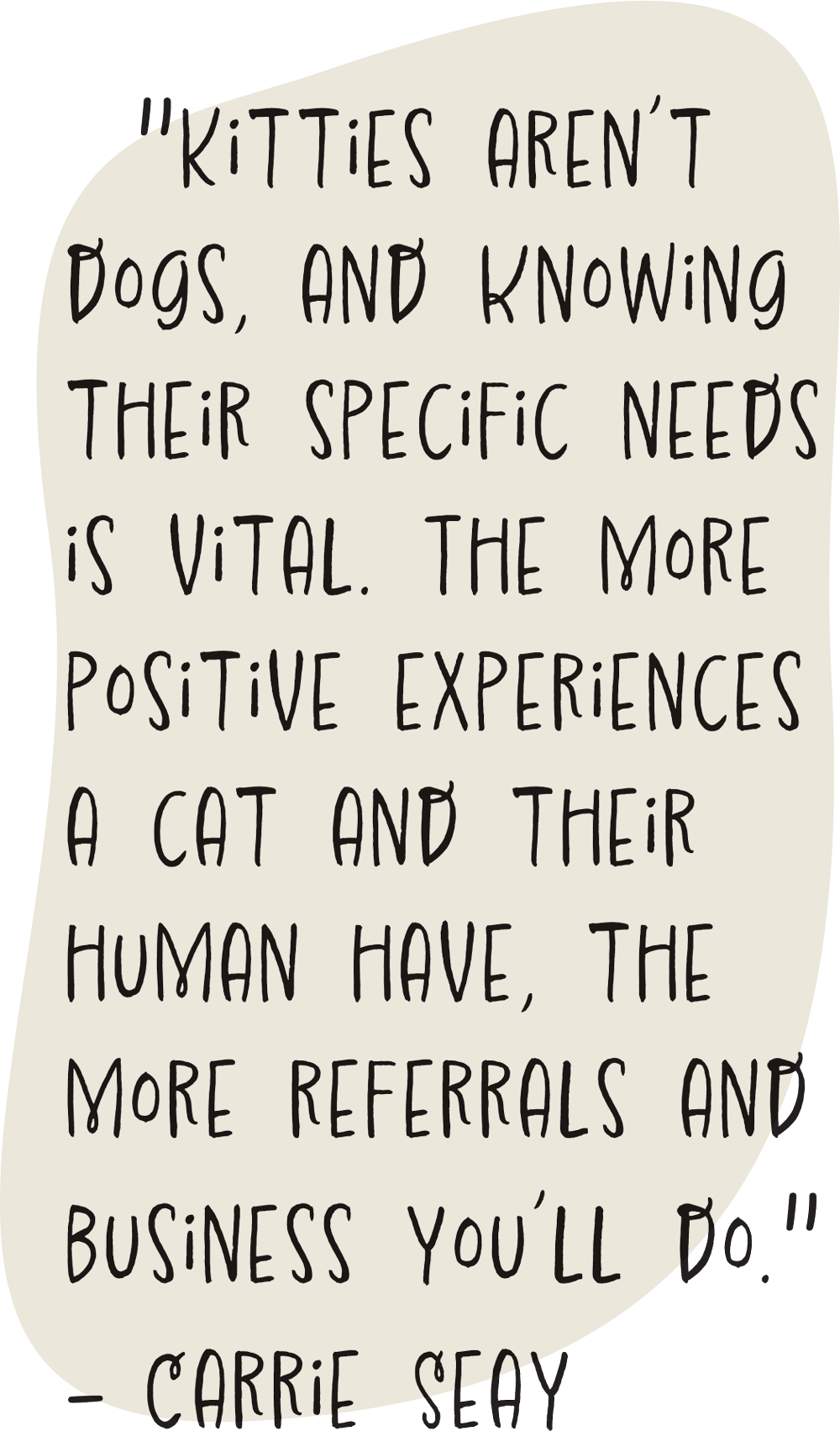

 t’s no secret that more and more cat parents are realizing that cats are social beings. They need attention and enrichment just like dogs. For some cats, spending an entire week or weekend by themselves is a lonely affair. They miss their people, just like dogs. As boarding and daycare professionals, these kinds of cats provide a great opportunity for you to expand your business and provide a social kitty the care and attention it needs.
t’s no secret that more and more cat parents are realizing that cats are social beings. They need attention and enrichment just like dogs. For some cats, spending an entire week or weekend by themselves is a lonely affair. They miss their people, just like dogs. As boarding and daycare professionals, these kinds of cats provide a great opportunity for you to expand your business and provide a social kitty the care and attention it needs.
But with cats being cats, what can you do to make a feline’s stay a positive experience for both the pet owner and the kitty? Carrie Seay, owner of Carrie Pawpins Cat Behavior Consulting Services in Phoenix, AZ, says you should ask a series of questions to make sure it’s a win-win for everyone involved.
Personality questions are the most important, as cats are typically more stressed than dogs in new situations. Other questions related to daily living are a must as well. Some examples are:

- Is your cat fearful, shy or have anxiety issues?
- How does your cat react to going to the vet?
- Is your cat able to be handled?
- What toys do they like? Feathered? Catnip? On a stick?
Seay says that when you board a cat, it’s really important to try to understand their personality and their quirks before they arrive. You want to make them feel as comfortable as possible. Behavioral quirks such as how they eat and drink can affect a feline client. “Ask the pet parent if their cat drinks out of a bowl with standing water, or out of a fountain. If you don’t know that, that can affect the animal when it comes to dehydration. It’s important to get it right,” she adds.
So how can you help a cat to relax once they’re in your care? “Make sure the cat owner brings things from home to help calm them. Perhaps a piece of clothing from the human so the cat can sniff their scent. Or, have them bring their favorite toy that staff can use to interact with the cat,” Seay suggests.
She also recommends Feliway, or other commercially made pheromones, which is a calming and odorless vapor that mimics a feline’s natural pheromones. “They make many cats feel safe and calm, and come in sprays or diffusers, which can plug into the wall. Cats can overstimulate easily in new places so pheromones are really helpful,” she shares.


As a behaviorist, Seay believes boarding facilities should train their staff in basic cat behavior. She suggests contacting your local cat behaviorist to train your staff, or if there isn’t one in your community, hire one to do virtual sessions. If your budget is tight, she says there are many free options as well. YouTube has a plethora of videos on the topic.
Additionally, she encourages boarding facility owners to get Fear Free certified, which is a movement to eliminate fear and anxiety in pets by educating the people who care for them with techniques that reduce stress. Seay herself is Fear Free certified and has a big problem when people scruff their cats, which is a no-no in the Fear Free method. “Scruffing cats is not good, it increases their stress and causes them to shut down. It’s also extremely uncomfortable,” she adds.
Seay says about 15 to 20 percent of her clients board their cats on a regular basis and many have positive experiences, thanks to great pet boarding professionals. “My biggest piece of advice is to make sure you plan and really think things through if you want to expand services to board cats. Kitties aren’t dogs, and knowing their specific needs is vital. The more positive experiences a cat and their human have, the more referrals and business you’ll do. That’s a win-win for cats to have more service options, and you to showcase your professionalism,” she concludes.

